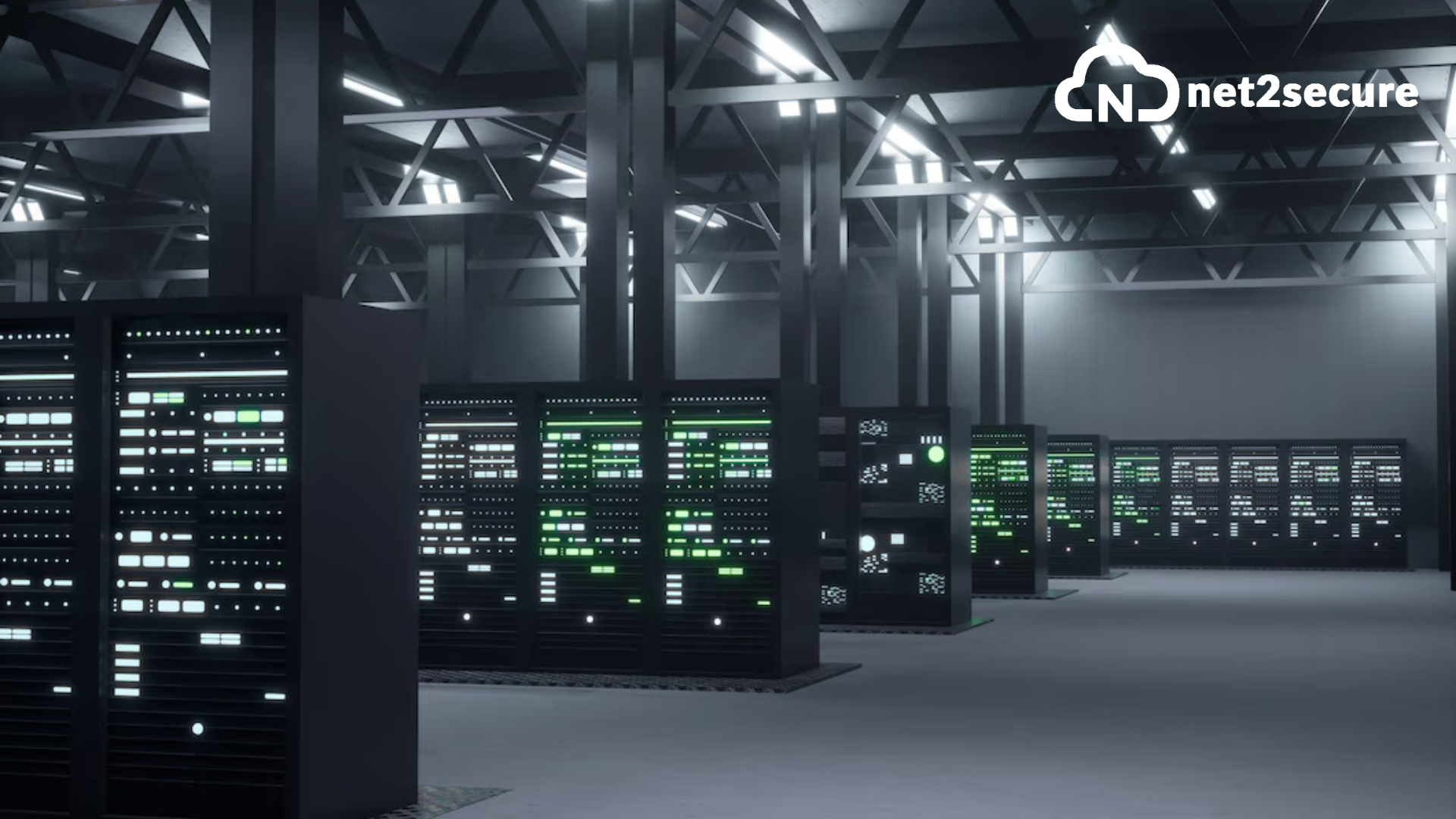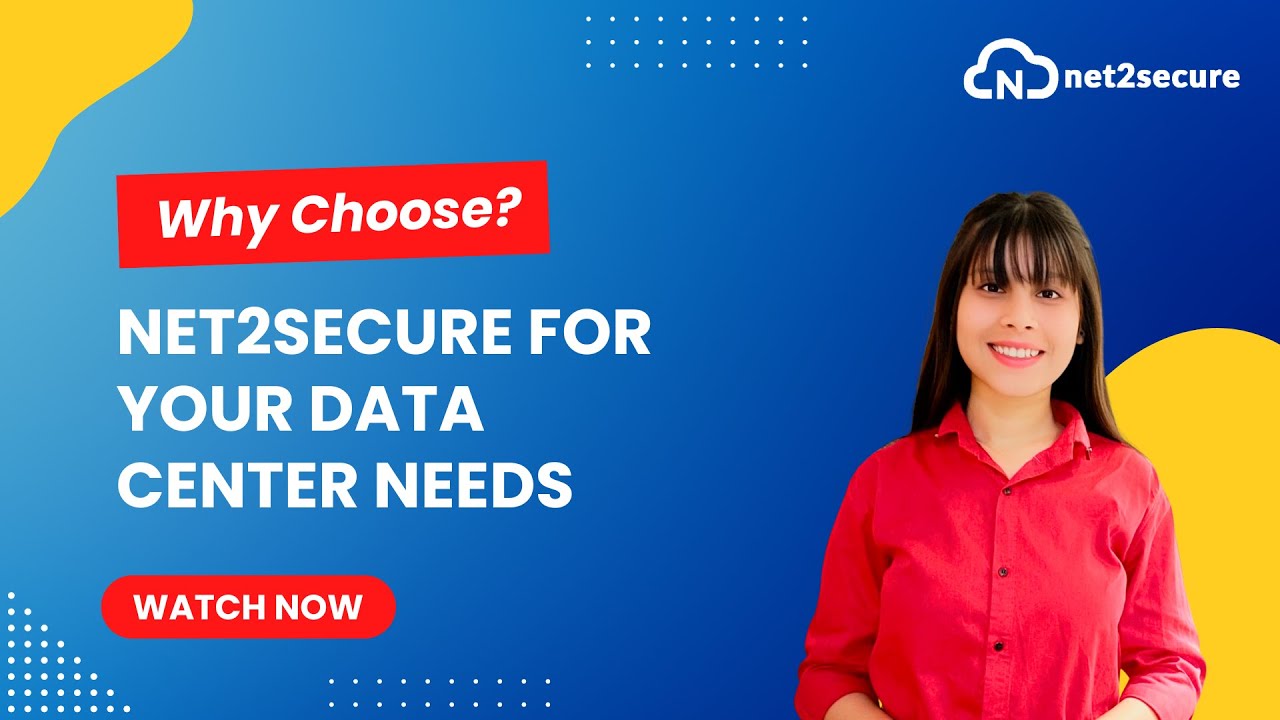Get Our Reliable and Affordable Hosting Plans
No matter the size of your business, we offer the most suitable and reliable hosting plans for your needs.
VPS Hosting
₹1100/- Monthly
- Processor 2v Core
- RAM 4GB
- SSD 50GB
- Windows Template
- 2 TB Data Transfer
- 1 IPv4
- Support 24X7
Dedicated Server
₹10,500/- Monthly
- Intel Xeon 16 Core
- RAM 64 GB
- SSD 2 X 960 GB
- RAID 1
- 1 IPv4
- Windows Template
- Support 24X7
Cloud Hosting
₹2000/- Monthly
- Processor 4v Core
- RAM 8 GB
- SSD 100 GB
- Window Template
- 2 TB Data Transfer
- 1 IPv4
- Support 24X7
Dominate the Digital Space with Our Hosting Solutions
-
Hosting Solutions
We offer reliable and scalable hosting solutions with a secure infrastructure while offering 99.95% of uptime and global connectivity for your business.
-
Email Solution
We are a leading data center service provider in India because we offer seamless and spam-free email hosting solutions with advanced encryption.
-
Backup & Security Solution
Our data center company enables you to protect your important data with automatic backups and industry-standard security protocols to keep data safe.
-
ERP Solution
Robust ERP solutions are provided for optimizing business operations that help in streamlining workflows and offer real-time insights to make decisions.
 (1).png)
About Us Net2Secure
At Net2Secure, we believe in empowering businesses with high-tech web hosting solutions designed for reliability, performance, and scalability. With a focus on customer satisfaction, we specialize in fully managed dedicated servers, cloud hosting, and secure email services. Our main objective is to provide seamless online experiences by combining exceptional technology with satisfactory 24/7 support.
- Free of Cost Trial
- FireWall & Malware Protection
- Full Server Management
- High Speed Servers
Key Technical Specifications: Web Hosting
99.99% Uptime Guarantee
Ensure uninterrupted online presence with our industry-leading uptime. Our web hosting service keeps your site accessible 24/7, making it reliable for businesses in India and worldwide.
SSD Storage
Boost your website’s speed with SSD-powered storage. Faster than traditional drives, it enhances performance for small businesses and large projects using web hosting India solutions.
Unlimited Bandwidth
Handle high traffic effortlessly without additional charges. Our web hosting service ensures smooth performance, perfect for websites growing in India and beyond.
Free SSL Certificate
Secure your website with free SSL, enabling encrypted connections. This boosts trust with your visitors and improves search rankings with trusted web hosting India providers.
cPanel Control Panel
Manage your hosting effortlessly with cPanel, the world’s most user-friendly hosting interface. Perfect for managing websites, emails, and databases with ease.
1-Click App Installers
Install WordPress, Joomla, or other apps quickly with a single click. This feature makes launching your site hassle-free with our web hosting service.
Daily Backups
Automatically safeguard your data with daily backups. Easily restore files and protect your hard work with secure web hosting India solutions.
LiteSpeed Servers
Improve website speed and performance with LiteSpeed servers, ideal for handling high traffic. It’s optimized for fast and scalable web hosting services.
24/7 Expert Support
Get round-the-clock assistance from our expert team. Whether it’s setup or troubleshooting, our web hosting India team is here to help whenever you need it.
Explore the Benefits of Our Web Hosting Services
Reliable Uptime
With web hosting services from Net2Secure, you can count on excellent uptime, ensuring your website is always available to customers. We provide the best web hosting for uninterrupted access to your site.
High-Speed Performance
Our web hosting services deliver lightning-fast load times, improving your site's user experience and SEO. Whether you're looking for the best web hosting or the best web hosting for small businesses, we've got you covered.
Enhanced Security
Security is a top priority. Our web hosting service in India offers robust features, including SSL certificates, firewalls, and backups, keeping your website safe from threats and ensuring peace of mind for your business.
Scalability
As your website grows, so do your hosting needs. Our web hosting services offer flexible plans, making it easy to scale up. Whether you're a startup or a large enterprise, we provide the best web hosting solutions.
24/7 Customer Support
Enjoy the peace of mind that comes with around-the-clock support. Our team is always ready to assist you with any issue, making Net2Secure the best web hosting for small business and larger enterprises alike.

How Do We Stand Out?
If you explore the market, you will find several web hosting service providers. But at Net2Secure, we believe that your website’s performance, security, and reliability are vital for your success. That’s why we provide top-notch web hosting services designed to meet your needs. No matter whether you are starting a small blog site or managing a large-scale eCommerce store, considering Net2Secure is the perfect decision for your business.
Why Net2Secure?
Are you planning to start your online journey or looking to scale your business? If so, you have come to the right place. At Net2Secure, we provide the best web hosting services that tailor to your unique needs. With our top-tier infrastructure and advanced security features–we ensure that your website runs smoothly, securely, and with maximum uptime.
We offer the best web hosting experience, designed for both beginners and experts alike. Our services include 24/7 support, seamless scalability, and lightning-fast speeds everything you need to stay ahead in the digital world. As a leader in the web hosting industry, Net2Secure is proud to be recognized as the best web hosting in India, trusted by businesses of all sizes to keep their websites online and performing at their best.
Tier 4 Data Center
24/7 support
9 Layers of security
DDos Protected Bandwidth
Who Do We Serve?
Our web hosting works for various divisions and industries offering custom-made solutions for every business based on their requirements.

Small Business
We provide affordable and scalable web hosting services tailored for small businesses. Whether you’re starting a blog, an online store, or a service-based website, we ensure your site is fast, secure, and ready to grow with your business.

E-commerce Stores
For e-commerce websites, Net2Secure offers robust hosting solutions that ensure fast load times, security, and 24/7 uptime. Our services are designed to handle traffic spikes, secure transactions, and provide a smooth shopping experience for your customers

Tech Startups
Our web hosting solutions are perfect for tech startups looking for scalable, reliable, and secure platforms. With advanced features like cloud hosting and high-speed performance, we help startups build a strong online presence from the ground up.

Educational Institutions
Net2Secure provides secure, fast, and reliable web hosting for educational institutions. Whether it’s for hosting course materials, student portals, or research projects, we ensure your online learning resources are always accessible and protected with top-notch security.

Government Organizations
For government agencies and public sector organizations, we provide secure, compliant web hosting solutions. With high availability, data protection, and privacy controls, Net2Secure ensures that public services and websites are always available and up to regulatory standards.

Corporate Enterprises
We offer enterprise-grade web hosting services with a focus on high security, scalability, and performance. Our solutions are tailored to meet the needs of large businesses, providing them with reliable hosting for complex websites, internal systems, and customer portals.

Nonprofits and NGOs
Nonprofits and NGOs can benefit from our affordable, reliable hosting solutions designed to support their missions. We offer high-performance hosting with a focus on security, helping them reach more supporters and deliver their messages to a broader audience.

Content Creators
For bloggers, podcasters, and other content creators, we offer web hosting with great performance, easy-to-use tools, and reliable support. Whether you're publishing articles or videos, our hosting keeps your content available and engaging for your audience.
Latest Blog

How Dedicated Servers Affect SEO and Website Performance?
Meet Mr. Harish Sharma, an aspiring entrepreneur, opening an eCommerce website to display his curated collection of handmade accessories...
Read more.png)
Net2Secure cloud computing Decode Cloud's Future: Top 10 Advanced Cloud Tech Trends You Must Know
With Cloud, you live the dream that files are everywhere but none of them under your bed...
Read more
Top 5 (+2) Reasons Why Big Companies Can Switch to Google Workspace formerly (G-Suite)
Whether it is a startup, small business, or large corporation, everyone is doing their...
Read moreTrusted by Global Enterprises
Net2Secure empowers businesses with web hosting solutions that set the standard for performance, security, and reliability. Be part of the growing network of visionaries who trust us to power their success.
What do our clients have to say?
-
I’ve been using Net2Secure for over a year, and their support team is fantastic. My website runs fast and has never been down. The free SSL and backups are a bonus!
Rahul Morgan: Professional Team! -
Net2Secure is the best web hosting service I’ve used. Their plans are affordable, and the setup was easy. My site loads quickly, and their 24/7 support is always there to help.
Priya Sharma: Amazing Services! -
I switched to Net2Secure, and it’s been a great experience. Their LiteSpeed servers are super fast, and the uptime is reliable. Perfect for anyone looking for secure web hosting solutions.
Amit Khandelwal: Pretty Good! -
Net2Secure provides great solutions for finance businesses helping us to keep our important data safe and transactions secure at all times.
Sankalp Yadav: Superb Solutions! -
I had a few queries that I needed answers to and the team has always been available to answer the questions. Such a helpful team.
Pulkit Khanna: Helpful Team!
Frequently Asked Questions
What is web hosting?
What are the types of web hosting?
The three main types of web hosting are:
- Shared Hosting: Multiple websites share the same server resources.
- VPS Hosting: Virtual private servers provide more control and resources.
- Dedicated Hosting: A single website has full access to an entire server.
How much does web hosting cost?
What makes Net2Secure’s web hosting services different from others?
How do I choose the best web hosting plan for my website?
Can I upgrade my hosting plan later with Net2Secure?
Is my website safe with Net2Secure’s hosting?
How reliable is Net2Secure’s web hosting service?

Got Questions?
We are here to answer all the queries you have regarding your hosting solutions or any issues that arise.
Call to Action
























.png)
